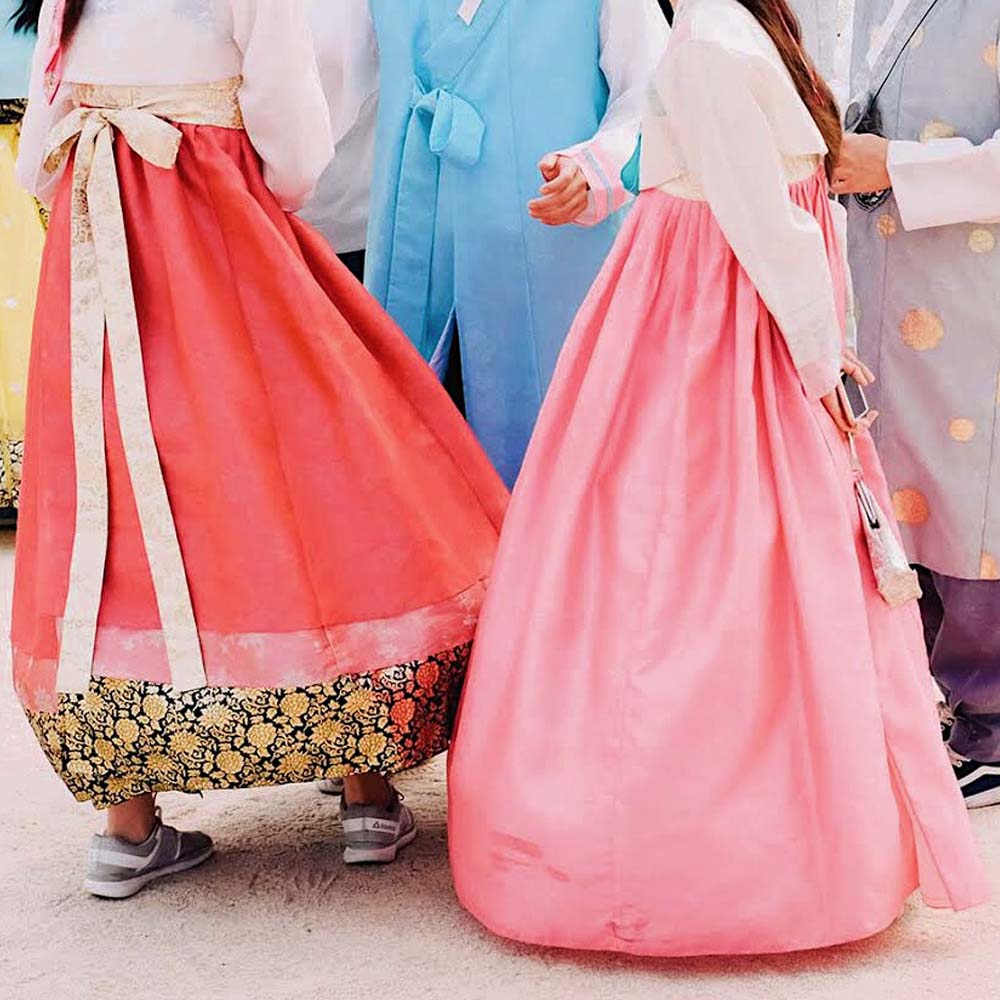
2018.
I’m on my back, right leg in the air, and a woman I met less than half an hour ago is making casual conversation with me while spreading hot wax on my netherbits. She doesn’t know it, but she’ll soon be the second person in my entire life with whom I’m able to share details of my ethnic background.
You have questions, I realize. First among them: Don’t I have one dedicated, regular person I task with this torture every 4-6 weeks? I do! In fact, when it comes to these types of very up close and personal self-care rituals, I’m quite loyal. But my regular aesthetician—a kind-hearted French woman named Marion—is unavailable, and I’m desperate. My backup waxing salon exists for this reason alone, and here I find myself, prone on a foreign table with a stranger as intimately placed as one could be.
We’ve covered the usual topics: relationship status, jobs, where we are from, and I mention in passing that my husband is Indian.
“That’s cool,” she says, popsicle stick spreading molten blue lava carefully. “So he’s Indian…what’s your background?”
I perk up as much as one can in my position.
“I’m half Korean,” I say excitedly, “And then the other half is a mix of Japanese, Chinese, and other mixed Asian from all over.”
She hasn’t registered my excitement. “Oh cool,” she repeats in that off hand, slightly-interested small talk way, concentrating on her task.
“Yeah.” I’m quiet for a few seconds. “Actually, I have to tell you—you’re only the second person in my entire life who I’ve been able to say that to. I only found out my ethnic background last summer. I did a DNA test.”
Now she really stops and looks at me. That is cool.
* * *
She was the second person; the first was an Uber driver who asked, “What are you?” maybe three months before. That a livery driver should be the first person to ask me post-test was ironic and yet not at all surprising, since cab drivers have the highest ethnicity inquiry rates based on my non-scientific tracking over the last 15-odd years.
And they’re not the only ones. To be sure, wherever I’ve gone throughout life — college, convenience stores, conferences; on dates, to the dry cleaners, to the drive-thru —I’ve heard this same question, or some country-specific derivative of it.
“So, what are you?”
“Are you Chinese?”
“Are you Korean?”
“Are you Japanese?”
“Are you Filipino?”
Maybe this experience isn’t unique. I’ve actually never asked anyone else if they get questioned like this, so now seems as good a time as any to wonder: do you get asked this too? I’m assuming everyone does at some point, but my guess is the more “exotic” you look (whatever the eff that even means), the more you get queried.
The difference, for me, was I never had an answer I knew to be true or held my confidence. In those same cabs, Joe could answer quickly: Indian. If the inquirer was Indian and wanted to know more, he had an equally fast follow up response: Gujarati. Second generation.
My answer always took a different, meandering route, because to be honest, I had no idea if I was full Korean. Sure, I’d been born in the country, and yes, I definitely look like I’m from East Asia. But I can’t tell you how many people have told me I do not look full Korean. Scores. In fact, this was usually the response I would receive when telling someone I was Korean. “Really? You don’t look Korean.” Japanese people would tell me they saw Japanese in me. Chinese people would do the same. Filipino people too, especially when I lived in L.A. and would return to Southern California for a new school year, tanned from the Texas sun.
And despite the conviction in my answer, whatever ethnicity I supplied always felt like a lie. The world would see me as one thing and expect that culturally, I’d identify with my external appearance. But I didn’t, and at least as of this writing, I still don’t. Let’s get real here: I grew up as the only child in a white family, with an Irish last name, in central Texas. I had little exposure to Korean culture where I grew up (visits to the lone Korean restaurant in town were about as close to my birth culture as I got). There was one other Korean kid in my grade, and beyond that, a smattering of other kids with East Asian backgrounds. When I moved to Los Angeles for school, the overwhelming feeling I remember isn’t one of excitement, or anticipation of adventure, but of relief: for the first time in my entire life, there were Asian people everywhere. I didn’t have to think about looking different.
The flip side of moving to a place with a lot more Asian people was more people talked about their ethnic backgrounds, and in turn, assumed I identified culturally with an Asian heritage. This became a constant tension in my identity—you see me one way, yet I feel another. It has sometimes felt like it requires constant explaining. I always feel like me, but that person exists in some strange in-between to others—Asian, until they realize I’m not, but I still kind of am?

If I had to make an official count of the votes I’ve received for my probable ethnic background, mixed Korean and Japanese would win the ballot. I’ve always found this to be a nice bookend to the story I tell myself most often about who my birth mother was and where I came from. In an unsurprising twist of events, the beginnings of that story also came from—you guessed it—a cab driver.
2007.
I’m in the back of a taxi, headed to meet friends for dinner. The driver is seasoned and I like him already—he makes his turns confidently, maneuvering down secret alleyways that eject us into downtown’s flowing thoroughfares, and we’re soon half way across the city. He’s the chatty type, regaling me with stories of his past two decades on these streets.
And then, there’s a lull in the conversation. He meets my eyes in the rearview mirror, and I can feel it—I know what question is coming next. It’s commonplace and I’m used to it, but I steel myself for the interview all the same.
“So…what are you?” he asks, “Japanese?”
“No, Korean,” I respond automatically.
He looks at me again.
“Really? You don’t look full Korean.”
“Oh. Well. I am. Or at least, I was born there. I’m adopted.”
“Oh, really?” he swivels around in the driver’s seat to get a closer look; it’s lucky I already trust his navigational skills. “So, you speak any Korean?”
“No, not a word.”
“Huh. Ever been back?”
“No.”
“Are your parents Korean?”
“No. They’re white.”
“And you’re from here? From San Francisco?”
“No. I grew up in Texas.”
“…Texas! And your parents are both still there?”
“My mom is. My dad died when I was almost 10.”
“Oh.” (Having given this interview many times, without fail this piece of information always slows its pace.)
He’s quiet for a few seconds. Then he turns back to look at me again and says, “You really don’t look full Korean though. I’m Japanese. You look like you’re part Japanese.”
We’re veering off course from the normal route this conversation takes, and I’m suddenly interested. Never has someone brought their own background into the conversation, or wanted to discuss my unknowing further.
“Really?” I ask, “I don’t really know what of my features might make me look one ethnicity or another. Why do you say that?”
“Everything together.” He’s using one hand and motioning to all parts of his face. “You look mixed.”
“Well, you never know,” I tell him, “I don’t really have a lot of information on my birth mother. My dad could’ve been Japanese for all I know.”
He looks back at me again in the mirror. “Huh. If she had you with a Japanese man, that could make sense for why you don’t look full. And for why she had to give you up.”
“What do you mean?”
“Don’t you know? Koreans and Japanese people have a long history of not liking each other. When were you born, in the 80s, early 90s? It would not have been acceptable for her to have a Japanese baby.”
I didn’t know this. I’ve done very little—okay, zero—research into my Korean origins, with Korean/Japanese geopolitical relations being last on my list of places to start learning. Maybe we covered it in 10th grade World History; if so, I definitely heard the word Korea and did the mental equivalent of sticking two fingers in my ears and screaming la la la la at the top of my lungs.
I mull over what he says, then put forth a theory.
“So, back then in the mid 80s, if someone was having a baby with a Japanese person, they’d have to give it up?”
“Not necessarily,” he tells me, “It’s just that Korean people wouldn’t have really trusted a Japanese person, and vice versa. Especially if she did not live in a big city, it would’ve been even worse for her.”
“I think she might’ve been older when she had me,” I say, reflecting on a small shred of information my mother told me long ago. “And I think she was from somewhere rural. Maybe I was a love child and she’d had an affair with a Japanese person and had to give me away.”
“Ha! Maybe,” he says, surprised by my candor. “Either way, it’d explain why you don’t look full and how you ended up here.”
•
I would think about this encounter for years after. Despite the many times I’ve been asked the question “What are you?” this conversation remains imprinted in my mind because it gave my origin story something it never had before: context. If I was fully Korean, there are a thousand ways I could’ve been conceived and brought into existence. But if I was part Japanese, the stories narrowed, the reasons for my conception and eventual surrender fewer. A thousand stories whittled down to a few hundred. The needle was in the haystack still, but the blades of grass were thicker and meatier. Shake the stack and what I sought might fall more easily to the bottom.

Maybe it seems crazy I waited as long as I did to spend a couple hundred bucks on a DNA test. I thought about doing it in late 2012, shortly after we got married. I put it off, and one thing led to another and we ended up moving to New York, while at the same time, 23andMe had suspended their genetic health risks and carrier status testing program because, well, the FDA told them to. I figured the whole mess would get sorted out in a matter of months. It took almost 3.5 years, but details, details.
This might surprise you, but of all my reasons for wanting to take a DNA test, determining my ancestry composition was third on the list. I wanted the medical info secondarily, but I was mostly interested in using 23andMe’s “social network.” If you opt into it, you can connect to people who are related to you. Have a long lost first cousin in Richmond? If they’ve taken a 23andMe test and opted into the DNA Relatives databases, you would find each other. Never knew about your third cousin three times removed? Now you do! Have a biological sibling living in St. Paul? Well, as an only child from Texas, that would be a pretty crazy thing to discover.
So one day last June, I ordered the test. It arrived; I spit into a tube, carefully copied down my identifying information, and mailed it off. In August, an email popped up in my Inbox during the middle of the work day. My results were ready.
In the weeks before, I had prepared myself for discovering something that might blow the entire door off the operation, so to speak. Maybe I’d meet an aunt living here in the states who had done the test. Or a biological sibling who might also have been adopted. Or what if there was a Korean cousin who was in the U.S. studying or working, and wanted to try 23andMe? Someone asked me what I’d do if I discovered a twin via their DNA databases, which felt unthinkable (and unlikely).
Finding these relatives would feel like a lucky shortcut to learning where I came from and what happened to me. There are a lot of ways you can go about finding your biological relatives, you see, but short of planning a trip to Korea, the quickest thing you can do is to try and find them with DNA. Make a match with a relative close enough, and you potentially uncover your entire family history, because the match can simply tell you about it.
I was ready to find out if I would be so lucky.
Adrenaline coursed through my body as I opened the results email. I clicked to the DNA Relatives section first, desperate to see if there was someone there who might be closely related to me.
Nothing. No one.
There was a list of people, many of whom were also adopted and seeking familial matches, but none were closely related in the least. My closest connection shared just .37% of their DNA with me; 23andMe estimated we might’ve shared a great-great-great grandparent, but perhaps not.
Disappointed but undeterred, I clicked over to the ancestry report. And then I saw it:
51.5% Korean.
I opened an email and I split my life in two: there was the before, of wondering, and the after, of knowing. All moments before the email were one life, all moments after another. I had a piece of myself snap into place; the narrative could start somewhere, could begin to take shape. I could answer the question.
* * *
“What are you?”
51.5% Korean. 31.9% Japanese. 6.6% Chinese. .6% Mongolian. 9.3% Broadly East Asian. .1% South Asian.
Basically, everyone was right.
So now I’ve known for almost 7 months and it’s odd how much it matters to me. I don’t think I realized how much not knowing bothered me, until I knew. It is a small but significant piece of knowledge passed on from your parents, a taproot to your entire existence, your story. What are you? From whence did you come? What culture might you relate to, even from long ago?
•
In addition to 23andMe, I’ve done two other DNA tests, all in an effort to find biological family members. Despite my DNA being compared against millions of other samples, I haven’t found anyone even closely related to me. At first, it made me feel alone and unsure. And then I realized: they’re all still there. On a small island on the southern tip of a peninsula half way around the world. They’re there. And I’m going.
Author’s note:
Written in the spring of 2018, this essay reflects information I had at the time—both in how I was coming to terms with the racial, ethnic, and cultural identity I had lost at birth, as well as the evolving information available to me via tests from 23andMe and Ancestry.com. Addressed (briefly) in other posts in the Origin Stories series, I would later learn that my 23andMe test was not accurate, and that I am in fact 100% Korean, both genetically, and in my familial ties.
Specifically, 23andMe’s genetic models were later updated when their East Asian DNA data set grew substantially, which in my case, resulted in the elimination of all other attributable ethnic and regional groups. (Let me state what I hope is obvious: that the company could’ve released ancestry proclamations without being assured of their accuracy is disappointing (if not appalling), especially in the context of the many early customers who were transracial adoptees desperate for information about their origins.)
The final word lay with what my family had to say on the matter: my mother and late father are both Korean, with no Japanese or other non-Korean family members in anyone’s memory.
VM, Aug 2023
Origin Stories is an essay series in which I’m exploring my adoption from South Korea at the age of 6 months, as well as my first visit back to the country this summer. Read more Origin Stories posts, below.
Origin Stories, Part I: I’m Going






so proud of you taking this courageous journey. we get used to having all these unanswered questions, that even having that small paper with your DNA results is pretty revolutionary to hold onto as a piece in the puzzle of who you are. once you step foot in korea, you’ll finally be able to answer the “where” question. i hope someday you’ll also be able to answer the “why”… although sometimes i do miss my fairy tale narratives that i used to dream up!
Victoria, this is seriously such an amazing post and an amazing story. Your honesty and candor is so refreshing and inspiring. I look forward to continuing following your story and seeing where this journey takes you.
I absolutely love this. Your writing is incredibly engaging and I can’t wait to see where this adventure takes you and to continue reading along.
This is so, so beautiful and captivating. You are an incredible writer. Cannot wait to read more of your work and hear about your upcoming trip.
Victoria–this was transfixing to read. Thank you for sharing & taking us along with you; I feel like I was reading the first chapter in a book but of course this is also your real life! Maybe there is a book down the road? But the main thing is that you are seeking…thank you for letting us in as well!
I absolutely loved this and can not wait to read more! You are a truly gifted writer. Thanks for taking us on this journey with you.
Your writing is beautiful. You have such a way of describing your thoughts, feelings and events that make you, you. I look forward to continuing to follow along on your journey. Thanks for taking us with you.
Victoria,
I always look forward to your posts; they’re like a breath of fresh air. Thank you for sharing your journey!
Victoria! I have so many thoughts related to this post. First of all, I’m so excited for you and this journey on which you’re about to embark. I can’t wait to follow along and learn about the people you encounter.
Being from Hawaii, I’m also not totally sure what my ancestry is. The short answer is that we’re Japanese. Lots of people have asked me the same questions, and lots of people have also told me that I don’t look totally Japanese. I took the Ancestry DNA test last year and was hugely disappointed to receive the result: 100% Eastern Asian. Obviously–but what does that MEAN? It’s amazing to hear that you’ve received such a detailed analysis from 23 and Me. I’m under the assumption that Asian people don’t get as many connections on these sites because our records aren’t as carefully kept, which I believe is part of the matching process, and not as many Asian people are taking the tests as people in other countries (re: the DNA part of the process). Despite knowing my biological family members, I’m not closely connected with anyone on Ancestry either.
Lastly, the most recent episode of “Where Should We Begin” with Esther Perel focuses on a couple whose grown daughter is adopted from Korea. Their daughter has withdrawn from the world and they’re trying to figure out what to do. It was a fascinating episode that made me think a lot about how much celebrating your identity forms you and allows you to live your truth. As I listened, I wondered what you might think of the episode.
Thanks for letting us in on this journey. XO
This story has me in tears! How wonderful that you are now so certain about this aspect of your ancestry and “who you are”!
This story really hit home for me because one of my dreams is to adopt a baby one day. Not even necessarily from a foreign country, but to give a child a loving home is something on my heart! Hearing your thought process and things that bothered you (whether you knew it at the time or only later) are so eye-opening to me. Adopting will come with so many challenges, but also so many opportunities, and I appreciate your candor in telling parts of your experience.
On to read part 1 now – I know I’m doing it backwards haha!
xo Mary-Katherine
http://www.goldhattedlover.com
I wish you all the best on your journey. “What are you” is a curious question since so much of identity has to do with how you are raised, who you associate with, and yet it is unavoidably about how other people perceive based on appearance as determined by your genetics.
I definitely get the “what are you” or “where are you from” question. My genetics must be particularly screwy b/c I’m still waiting for someone to accurately guess my background. But the influence of appearance on perception is strong. I’ve been told I have an accent, thought I only speak English. They ‘hear’ an accent because of my face. I’ve had strangers assume I’m quiet because they think I’m foreign. And I have strangers suggest I am lying about being American. When people learn the truth they make assumptions about my family history. Your father was in the military (no), your mother came to the U.S. as his bride (no). Sorry for the tangent but I just think this phenomenon is so curious.
Genetic testing is informative, and I hope it leads you to the answers you are searching for. But it is only one aspect of what makes you, you.
Victoria – this second part of your origin story is amazing! I mean the first part was great too, but I loved this. I love the story of the taxi cab driver. And I love that you have done DNA tests. Thanks so much for sharing this side of your life with us. Also, I never knew Joe was Indian! My husband is Indian as well! I always seem to feel connected to those women who are in bi-racial relationships with Indians!
You are a great writer! I enjoyed reading both your origin stories. Thank you for sharing!